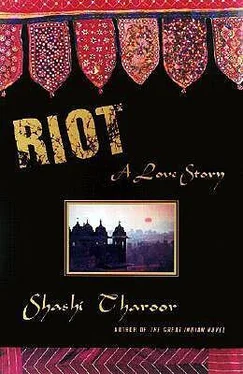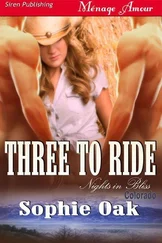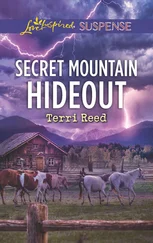trotting to the Ganesh mandir in the middle of the street, their devotions
drowned out by the loudspeakers outside the domed gurudwara,
chanting verses from the Granth Sahib. My favorite Jesuit priest
cycles to jail, bringing succor to prisoners. The millionaire brewer’s son
drives by in his open Sunbeam, racing noisily past the complacent cow
grazing idly at the corner. Peace flaps in the wind like washing.
The world we lived in was two worlds,
and we spoke both its languages. In the night
we dreamt of school, and exams, and life,
while the day burned slowly like a basti brazier,
blackening the air we breathed. Naxalites drew proletarian blood
while refugees poured into our streets,
children of a Bangladesh waiting to be born.
In the distance, the politicians’ loudspeakers growled like tanks
rumbling across the border to craft another people’s destiny.
The sun seared away our patience.
Behind the battlements, we slept, and lived, and studied,
never quite finishing the last drink, nor emptying the last dish.
Poor cousins from the country stayed with us
till shorthand classes and my father’s friendships
won them jobs. We raised funds for Mother Teresa.
The future stretched before us like the sea.
At dawn the saffron spread across our fingers,
staining our hearts with light.
Lakshman to Priscilla
July 1, 1989
Isn’t it lovely here? I could sit with you and look across the river at the sky as the sun sets completely, feel the darkness settle on our shoulders like a cloak, and forget everything, especially the hatreds that are slowly being stoked in the town even as we speak. It almost moves me to prayer.
Why do I pray? And how? And to whom? So many questions! Well, I’m a Hindu — I was born one, and I’ve never been attracted to any other faith. I’ll tell you why in a minute. How do I pray? Not in any organized form, really; I go to temples sometimes with my family, but they leave me cold. I think of prayer as something intensely personal, a way of reaching my hands out towards my maker. I recite some mantras my parents taught me as a child; there is something reassuring about those ancient words, hallowed by use and repetition over thousands of years. Sacred Sanskrit, a language alive only in heaven and kept from dying here on earth so that we can be understood when we address the gods. But I often supplement the mantras with incantations of my own in Tamil or English, asking for certain kinds of guidance or protection for myself or those I love. These days I mention you a lot in my prayers.
Yes, I pray to Hindu gods. It’s not that I believe that there is, somewhere in heaven, a god that looks like a Bombay calendar artists image of him. It’s simply that prayer is a way of acknowledging a divinity beyond human experience; and since no human has had direct sight of God, all visual representations of the divine are merely crutches, helping flawed and limited human beings to imagine the unimaginable. Why not a corpulent elephant-headed god with a broken tusk? Why is that image any less real or inspiring of devotion than a suffering man on a cross? So yes, I pray to Ganapathi, and to Vishnu and Shiva, and to my memory of a faded calendar portrait of Rama and Sita in my parents’ prayer room. These are just ways of imagining God, and I pray in order to touch those forces and sources of life that go beyond the human. Human beings, to me, are rather like electrical appliances that need to be charged regularly, and prayer is a way of plugging into that charge.
So I’m not embarrassed to say I’m a believing Hindu. But I don’t have anything in common with these so-called Hindu fundamentalists. Actually, it’s a bit odd to speak of “Hindu fundamentalism,” because Hinduism is a religion without fundamentals: no organized church, no compulsory beliefs or rites of worship, no single sacred book. The name itself denotes something less, and more, than a set of theological beliefs. In many languages — French and Persian amongst them — the word for “Indian” is “Hindu.” Originally “Hindu” simply meant the people beyond the river Sindhu, or Indus. But the Indus is now in Islamic Pakistan; and to make matters worse, the word “Hindu” did not exist in any Indian language till its use by foreigners gave Indians a term for self-definition.
My wife’s in the Shiva temple right now, praying. In all the chants she’s hearing, the word “Hindu” will not be uttered. In fact, Priscilla, “Hinduism” is the name others applied to the indigenous religion of India, which many Hindus simply call Sanatan Dharma, the eternal faith. It embraces an eclectic range of doctrines and practices, from pantheism to agnosticism and from faith in reincarnation to belief in the caste system. But none of these constitutes an obligatory credo for a Hindu: there are none.
You know, I grew up in a Hindu household. Our home (and my father moved a dozen times in his working life) always had a prayer alcove, where paintings and portraits of assorted divinities jostled for shelf and wall space with fading photographs of departed ancestors, all stained by ash scattered from the incense burned daily by my devout parents. Every morning, after his bath, my father would stand in front of the prayer alcove wrapped in his towel, his wet hair still uncombed, and chant his Sanskrit mantras. But he never obliged me to join him; he exemplified the Hindu idea that religion is an intensely personal matter, that prayer is between you and whatever image of your maker you choose to worship. In the Hindu way, I was to find my own truth.
Like most Hindus, I think I have. I am, as I told you, a believer, despite a brief period of schoolboy atheism — of the kind that comes with the discovery of rationality and goes with an acknowledgement of its limitations. And, I suppose, with the realization that the world offers too many wondrous mysteries for which science has no answers. And I am happy to describe myself as a believing Hindu, not just because it is the faith into which I was born, but for a string of other reasons, though faith requires no reason. One is cultural: as a Hindu I belong to a faith that expresses the ancient genius of my own people. Another is, for lack of a better phrase, its intellectual “fit”: I am more comfortable with the belief structures of Hinduism than I would be with those of the other faiths of which I know. As a Hindu I claim adherence to a religion without an established church or priestly papacy, a religion whose rituals and customs I am free to reject, a religion that does not oblige me to demonstrate my faith by any visible sign, by subsuming my identity in any collectivity, not even by a specific day or time or frequency of worship. There’s no Hindu pope, Priscilla, no Hindu Sunday. As a Hindu I subscribe to a creed that is free of the restrictive dogmas of holy writ, that refuses to be shackled to the limitations of a single holy book.
Above all, as a Hindu I belong to the only major religion in the world that does not claim to be the only true religion. I find it immensely congenial to be able to face my fellow human beings of other faiths without being burdened by the conviction that I am embarked upon a “true path” that they have missed. This dogma lies at the core of religions like Christianity, Islam, and Judaism. Take your faith: “I am the Way, the Truth, and the Life; no man cometh unto the Father, but by me,” says the Bible. Book of John, right? chapter 14, verse 6; look it up, I did. Or Islam: “There is no God but Allah and Mohammed is his Prophet,” declares the Koran — denying unbelievers all possibility of redemption, let alone of salvation or paradise. Hinduism, however, asserts that all ways of belief are equally valid, and Hindus readily venerate the saints, and the sacred objects, of other faiths. There is no such thing as a Hindu heresy.
Читать дальше












